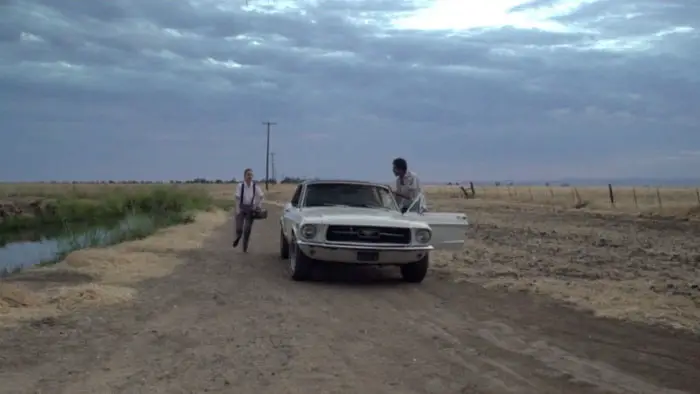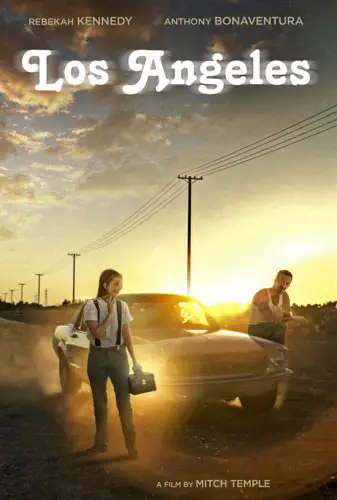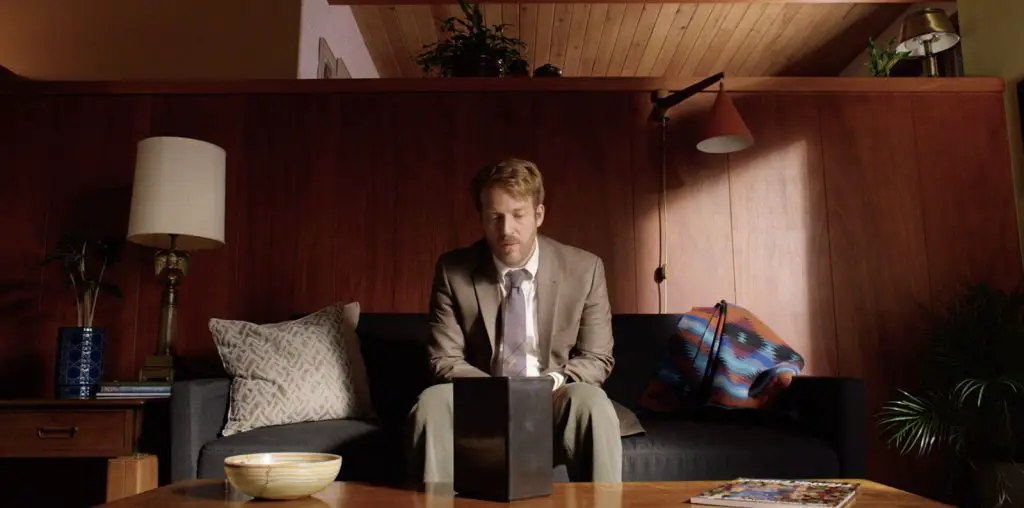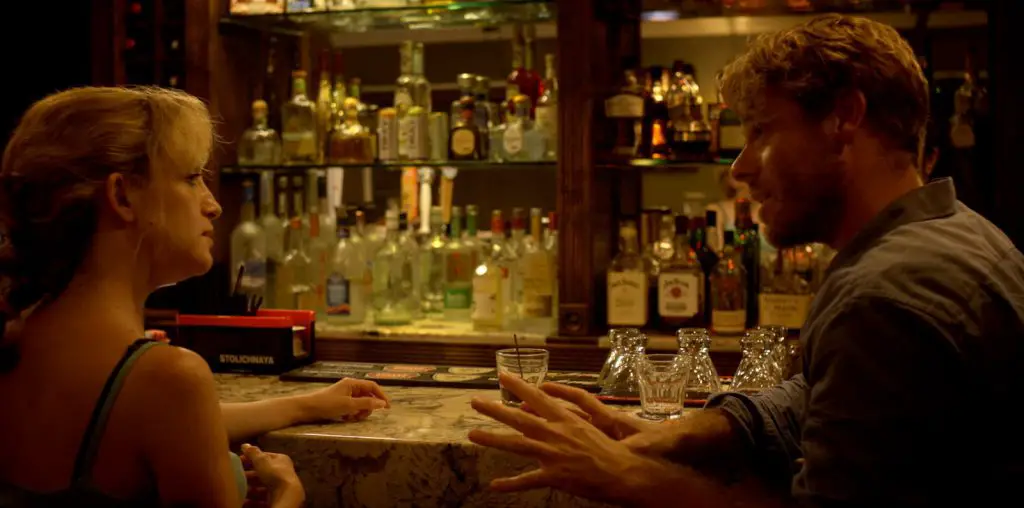
Los Angeles, written and directed by Mitch Temple, follows two outsiders as they venture on a cross-state, semi-spiritual journey to Los Angeles. Jojo (Rebekah Kennedy) is a young mute woman who thinks she hears God summoning her to save his son, Jesus Christ. So she leaves home to fulfill her divine quest, only to be joined by Cash (Anthony Bonaventura), an escaped convict.
The two hit the road with the FBI not far behind. Jojo carries with her a shoeshine kit, and within it are supposed angels she lets perform for unsuspecting crowds at grimy bars. They go from New Orleans to Austin then to Albuquerque, spreading Jojo’s divinity at her discretion. It’s only fitting that the end destination is the City of Angels, the titular city of Los Angeles.
Los Angeles is a vastly eccentric spiritual journey of forming connections that can help heal. Interlacing sporadic bursts of wooden humor with otherworldly elements that unsettle, the drama treads a fine tonal line while maintaining a good pace. Temple imbues the atmosphere with an all-embracing mystery regarding Jojo’s presence as a composed, non-speaking protagonist with divine-like influence. She may be guided by faith, but her ability to connect with people is scarily and interestingly enigmatic.
Visually, the film has a realistic feel due to DOP John Defazio employing intimate camerawork and natural lighting. Despite dealing with religious ideology, Steve Wilder composes jaunty instrumental music that prevents the tone from becoming too somber. It’s a delicate balance that works mostly well.

“The two hit the road with the FBI not far behind.”
Jojo’s self-proclaimed purpose is known, yet, her journey lacks emotional impact and much-needed clarity. That could prove frustrating for viewers. And yet, I can’t help but be intrigued by what it could represent. Los Angeles can easily serve as a cautionary tale on blind faith or a testament to its power. Either way, the filmmaker wallows in ambiguity and last-minute reveals, to the point that the plot is structurally and thematically lacking.
The movie not only documents Jojo but the people she transfixed with the divinity she wields. The director effectively documents these peoples’ transcendental experiences while still being appropriately vague. Unfortunately, it’s the ending where he bites off more than he can chew.
The material often feels underwritten. Nevertheless, there is a lot to like. The performances are well-rounded. Kennedy never says a word, but thanks to her wide-eyed yet domineering gaze and taut body language, there is no need. Bonaventura brings a carefree quality to Cash, which is a nice contrast to Jojo’s muted assertiveness. The FBI agents — played by a capable Leith M. Burke, Jeff Tendall, and Sachie Alessio — are more or less comic relief. For the most part, their scenes of humor blend well with the drama.
Overall, Temple’s Los Angeles is an unusual title with a curious plot and engaging performances. The writing could have been improved in areas to enhance clarity and insight, as Jojo’s endgame hinders rather than intrigues. But, the drama is fascinating in its portrayal of faith and connection and how to re-establish those connections by simply having faith.

"…an unusual title with a curious plot and engaging performances."


